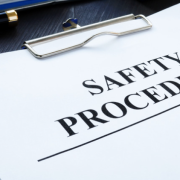
Banking Collapse – Causes, Consequences, and Mitigation Strategies for Small-Medium Businesses
After four decades, Silicon Valley Bank collapsed this month. A US$200bn company, this makes the largest bank failure in recent times since the global financial crisis of 2008.
A major bank failure such as this is always a catastrophe, and the knock-on effects can be tough for businesses and investors.
What factors contribute to banking collapses?

A bank fails when it cannot meet its obligations to creditors and depositors. This can happen for a few different reasons. One common cause is when the value of the bank’s assets (anything the bank owns) falls below the stock market value of its liabilities (anything the bank owes). This can occur when a bank loses more than it expected on its investments.
Failing banks often try to save themselves from collapse by borrowing money from solvent banks, but this isn’t always successful. When depositors get wind of the news that the bank in question is struggling, they may swoop in to get their money back simultaneously. This can make matters worse.
Issues can also occur if a bank is too heavily concentrated on a specific industry. This can put them in a weak position if that sector goes through a downturn. It has been suggested that one of the reasons for Silicon Valley Bank’s downfall was its heavy reliance on the tech sector.
How do banking collapses impact SMEs?

Banking collapses are a concern for the SMEs who comprise the bank’s depositors. They rely on the funds stored in the bank to pay their energy bills and remunerate staff.
For banks that operate in the UK, it’s important to know that up to £85,000 of your funds are protected by the FSCS. Issues can occur when a business stores more than this amount in one bank or if they use a bank in another country where less of the fund are protected.
What are the best strategies for SMEs to manage the impact of banking collapses?

It’s understandable for an SME to be concerned about how a future bank collapse might affect them. They can benefit from getting tailored advice from assurance, tax and consulting experts who know the financial department inside out.
It’s best not to put all your eggs in one basket. If you oversee financial decisions within your business, consider using a range of different banks for your needs so that if one collapses, all is not lost! Research your options carefully and be aware that using overseas banks may not guarantee you the same protections as a British bank.
Run stress tests to see how your business would fare if the finances took any sudden hit. This information is invaluable to get the data you need to arm your business against financial crises.
Set aside some money each month to save in an emergency fund. Keep it in a savings account that allows you to withdraw quickly and easily.
Banking collapses can take a toll on the businesses that use them. Luckily, there are ways your business can prepare for this eventuality.





